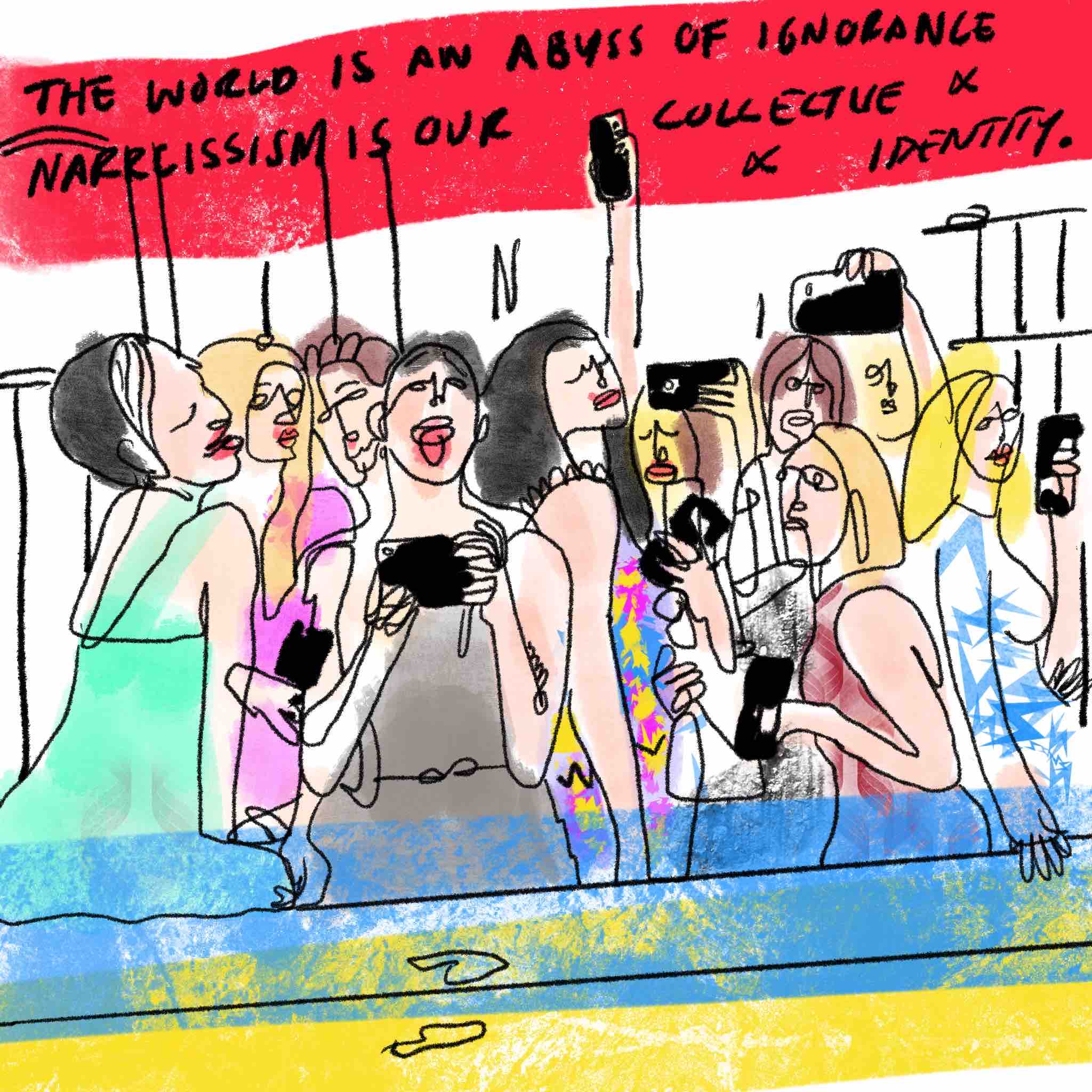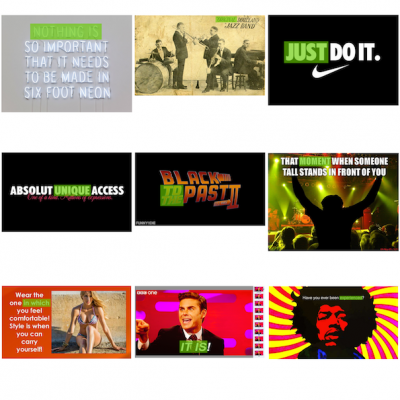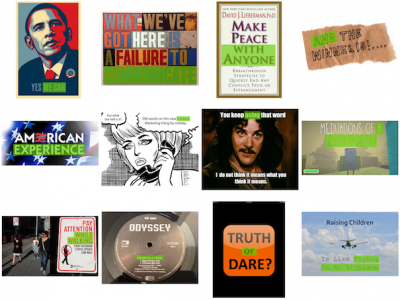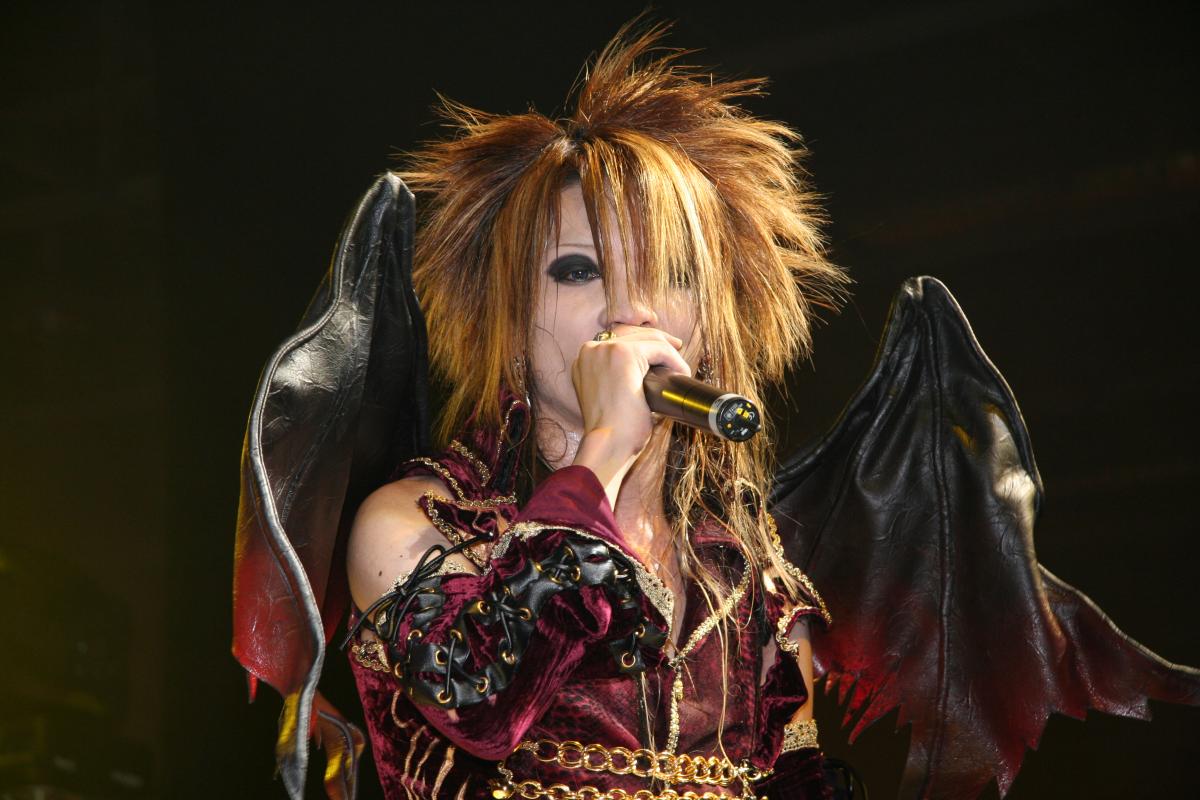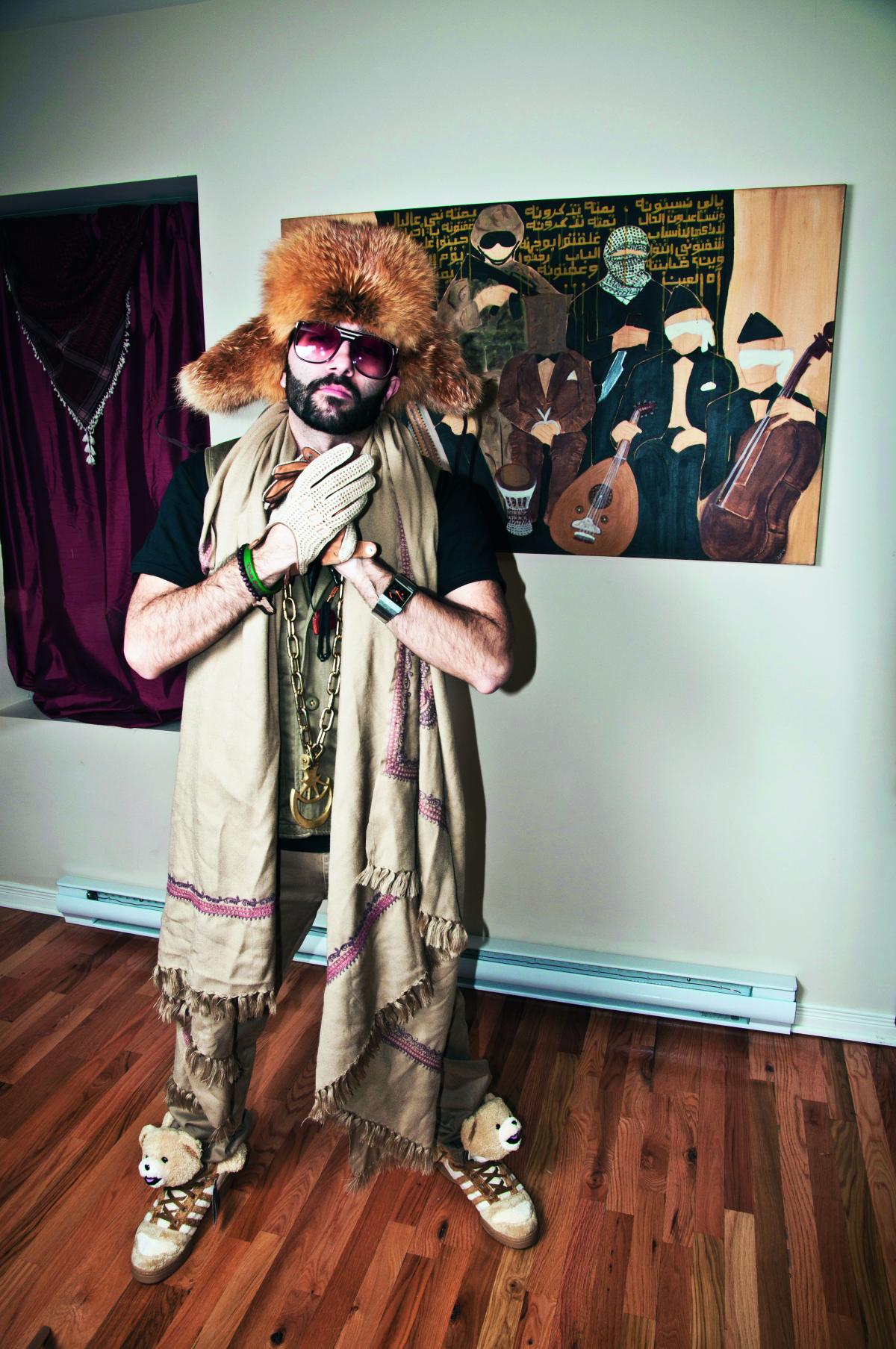
NWA Came before the NWO
Iraqi-Canadian rapper The Narcicyst knows how it feels to be young and Muslim in a post-9/11 world. Today, he considers himself a world citizen and aims for an individual identity that includes his origin, his home, and his community. From the Norient book Seismographic Sounds (see and order here).1
Never in my wildest dreams would I have imagined that ten years into a music career I would become disillusioned with the search for belonging. It happened in an instant, after I had reached my third decade on Earth. I realized that I didn’t want or need a home anymore. As I stood backstage at the Metro Medina in the Hamra area of Beirut, amongst some of Syria’s and Lebanon’s most politically active MCs, I felt once again that I didn’t belong. Since the early 2000s, I have embraced and been a part of a growing voice from the diaspora and beyond, coined as the «Arab hip hop movement». My master’s thesis was about Arab identity formation in hip hop, which eventually shaped the docu-narrative book The Diatribes of a Dying Tribe. In my research, I was able to connect with practitioners worldwide and develop some of the most heartfelt and long-standing friendships (let alone the creative pow-wows that ensued). Having established myself as an Anglophone MC, I never questioned my role in the growing community of Arab artists under the hip hop umbrella. I stood there with my rings and scarves, donned in a leather vest and fedora, looking and feeling completely different. My privilege and my experience were so different from the MCs around me that my validity as a «voice» was put under internal investigation. We were also very similar in some ways. As I rocked the headlining spot on stage I was heckled by members of the audience to «rap in Arabic». Ironically, those same people were speaking French over the booming bass and over the trembling treble of our music all night. I proceeded to dig into them, battle rap style, in Arabic. I didn’t know I was able to do that. It was then that I realized, while delving in free association, I am of two minds. As is our history.
Old Stories – New Hope
Beginning in a trio called Euphrates in 2000, our music came about at a time when what is now known as the Arab Spring was a myth, a dream, an impossibility. There was no revolution in our mother country, only occupation, dictatorship, and hidden hands from the Arab Gulf and the Western coalitions playing checkers during a chess game. These same occupations fueled the proceeding complex and destructive fight to re-identify our power structures and regimes in the Arab World; it was a failed attempt at reconstructing a hypocritical and divisive system of rule in Arabia. Without demeaning or comparing struggles, Iraq is different from Syria, Lebanon, Palestine, Libya, and Tunisia. Our despot was the bitter boyfriend of modern day colonialism. While he embraced a false hope of Arab Unity, he was afraid of his fellow brethren. He and his family squandered the finances of the nation on their passion for all that is Western, all the while romancing an idiom of independence based on power-mongering and foreboding fear campaigns. Uniquely, the battle for Iraq’s resources was fought publicly on news networks and in the living rooms of a worldwide audience. Iraq was a public display of abuse of power, relationships gone badly, and history repeating itself over and over again. Here we are a decade later with a growing cancer that goes by the name of Islamic State, a displaced Arab body shifting between refugee status and land claims, a lack of leadership, and, most importantly, dying children. Needless to say, all the protesting and call for action around the war was in vain. Nobody listened. Once again, we were conspiracy theorists that feared change and freedom. Today, Iraq is still under what I believe to be «Babylon’s Curse».
The Peaceful Flagship «Taliban MC»
I recall how I felt when September 11th happened. Not that it felt any different than watching 3amiriyah or the terror of Bombs of Baghdad. It just hit closer to home, geographically speaking. Growing up in the vibrant yet cold cultural city of Montreal, I found myself many a times at a juncture asking «Who am I and where do I belong?» I can still feel the resentment from my first rap battle in 2004 when someone called me the «Taliban MC». It wasn’t the slur that bothered me so much – it was the reductionist outlook on our identity, our history, and the politics of the mosaic culture known as «Arab». I didn’t have time to explain myself, or get into semantic Semitic diatribes over Mobb Deeps’ Shook Ones, so I beat him that round and left the circus of poetry behind.
Publicly, and around the same time, I was touted in the Canadian media as the peaceful Iraqi rapper; a modern day example that Arabs have the ability to be civil and responsible, are welcoming and able to comprehend «freedom» as a right. But the difference between my two cultures was what made me realize that freedom, on Earth, is a choice. When a right is given, handed to a person by a political framework such as democracy, then it is no longer a natural right but one distributed by a master to the person under their dominion. It felt very condescending, being pigeonholed into a box of complacency, normalizing not only the struggle of my people, but the call for humanity and justice that we spoke of in our music. This conundrum is pervasive not only in my present work, but in the public narrative around what the role of hip hop is for Arabic youth. If commodification is the cornerstone of capitalism, then culture has become its primary design.
Hip Hop Opens Its Doors
Needless to say, our music was reactionary. We were in our early twenties, we were stopped for «random» checks at airports, followed around shopping malls, asked monochrome colored questions about what Islam we believed in and what home was like. It felt like an endless conversation into an abyss of ignorance. There was so much people needed to learn and accept in order to understand the complex web woven around the current events that were shaping not only our civil rights in North America, but a public international narrative that was destructive and divisive. I was stuck between Iraq and a hard place, trying to find a voice, screaming my pacifist ideologies and counter narrative at a hegemonic and systemic racism that was bigger than me, let alone hip hop.
November 2004 was a shift for me. On the night of Bush’s re-election into office, I was performing in Toronto, premiering some of the new material from Euphrates’ sophomore release Stereotypes Incorporated. This album was a reaction to both our media representation and our identity formation as young adults dealing with a new wave of social barriers. It was angry, emotional, revolutionary, unique, and, if I may say so, ahead of its time. I jumped off stage to find out that Bush had been re-elected and that I had many missed calls on my cell phone. I called my then girlfriend, now wife, back and she told me that Nawaf, one third of our group, was hit by a taxi on his way to my house. He was in a coma. This was my new world order. Everything I had built with my brothers, everything I knew and believed in, all my political convictions went out the window. The personal took over and I was completely shattered when Nawaf «Nofy Fannan» Al-Rufaie passed away on November 26th, at the age of twenty-six. I was a shell of a man.
A New Global Community
Everything I had known had turned on me. I was holed up at home, looking for purpose. Meanwhile, our album was out and people were showing love more than ever. Euphrates reached our motherland and back, echoing sentiments from the multitude of brown people around the world. I was getting booked for shows, travelling alone and feeling the empty space that Nofy and his brother used to fill next to me on the plane. It was hard. I returned to do my Master’s degree at Concordia to discover why hip hop spoke to us three specifically. I was back in the same classrooms, studios, and lectures that I shared with Nofy, as though he was guiding me through the hallways of Concordia University. He was everywhere and I belonged nowhere. I scoured the Internet for other Arab artists, producers, writers, and musicians who were creating and creative. It helped me cope seeing the growing community of people who used hip hop as a vocal resistance and a spiritual transcendence. Just as Nofy did. In the process, I was recording two projects simultaneously: a collaborative album with Omar Offendum, Ragtop and Excentrik called Fear of An Arab Planet, which served as my Master’s thesis and my first solo album. This is when I realized that hip hop chose us. Hip hop is about the people. Hip hop is our home. This rings true to the entire Arab hip hop community.
In 2009, five years after losing Nofy, I released my self-titled album The Narcicyst. I chose this name as a naïve young man, looking to assert both my prowess as an artist as well as my belief in myself against all those who opposed me, from NSA agents to artists. As I grew into my late twenties, I realized this name became my Achilles heel; it helped me garner the attention of those who are attracted to the overtly cocky but also had people stand back from really delving into the universe I created for listeners and myself. It was also at this juncture in life that the true meaning of my name occurred to me. The Narcicyst is the human condition. We live in a world of individualism, where collective history is being deleted by our assertion of self, our Facebook status updates, our irrational need to share everything through computers to each other. The intrapersonal has become overt individualism. The state of the world as we know it is a direct reaction to the narcissism of our exploitation of each other. We gaze into our cell phones made with minerals ripped out of the heart of Africa; we return them as waste to toss into the vast piles of growing technology that we don’t need but want updates for. The Narcicysst was all of us, including myself. This realization made me see the true power of art and music. It wasn’t about me, it was about the ability to document a collective identity that was not only being questioned but being shaped by other voices.
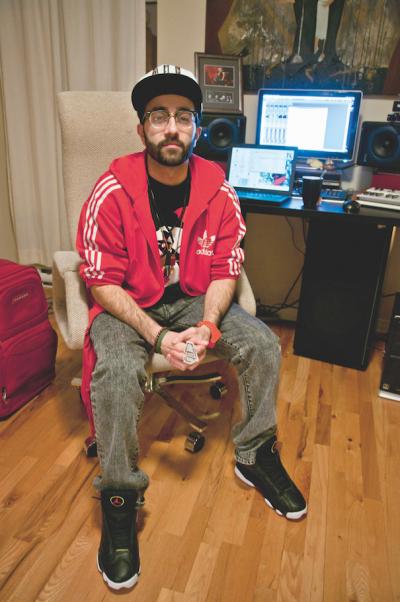
Many attribute the second wave of Arab hip hop, or the rise of it, to the Arab Spring – just as they did when 9/11 hit. The truth is hip hop has been bubbling in the ears and minds of our youth since the mid-1990s: Wu-Tang was saying Allahu Akbar and Rakim was mentioning the Prophet Muhammad; Raekwon was hailing taxis from musty («moldy») Arabs and Common was ordering fries behind two inches of glass. We have always been a part of the narrative of North America and, more importantly, of Europe. I found it disheartening to see our youth voicing their opinions so loudly during a shift, not a change, but a drift of consciousness in our countries while the media only saw it as another headline. We were bigger than a song that rallied against a dictator. We were a growing community, making individual efforts to document our collective memory.
It is not only unfair to demarcate the power of our music to specific political moments, but also a way to remove the power of our words and actions once again. It was a part of the same imperialist effort to make our self-definition into their image. I refused to address much of the events in the Arab world after we released «#Jan25», a song for the people of Egypt. I felt, once again, displaced, angry, confused and isolated. While many of my peers were shooting out protest songs, I delved internally, trying to tap into the history in my genetic code – the stories of my grandfather and father, mother and grandmother.
Nowhere, Everywhere, International
I am no longer interested in defining myself, or us, by addressing the narrative presented to us. I came to realize that the only way to really change the world is to document and create our own story. We must share our humanity, not time code it to any specific nation, border, or belonging. We must share our humanity, our collective history and our memory. It is not about being Arab or Muslim, it is about being «othered» by society. It is time for the international to rise. Our collective pasts have made us the future of the world. We are those that belong to nowhere and everywhere. Nas, taking a quote from Scarface, said «The world is yours». But, really, we belong to the world. The acceptance of such a submission is at the core of not only my religious identity and my belonging, but also my cultural identity: hip hop. Hip hop is my country, Iraq is my origin, Canada is where my home is, and my community is international. I will not allow us to be defined by anyone but ourselves. This is our duty. As the Wu taught me and the Nation of Gods and Earths taught them: Each One, Teach One, Reach One. And nowadays: Tweet One. Peace. Salam. To you and yours.
- 1. The title was a decision and a condition by the author. «NWA» means Niggaz Wit Attitudes, «NWO» refers to the conspirary theory New World Order.
The text was published first in the second Norient book Seismographic Sounds.
Biography
Shop

Published on March 09, 2018
Last updated on April 10, 2024
Topics
A form of attachement beyond categories like home or nation but to people, feelings, or sounds across the globe.
From Bangladeshi electronica to global «black midi» micro scenes.
What happens, when artists move from one to another country? For example, when an Arab artist replaces the big tractors in her the village with big jeeps of the West.
Special
Snap
